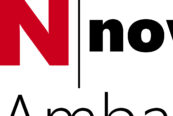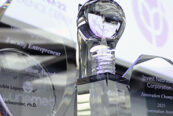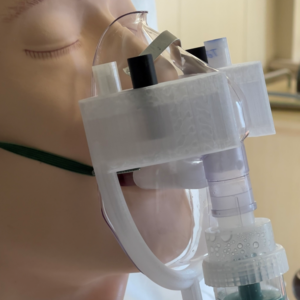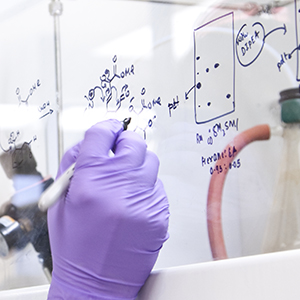FROM THE OMAHA WORLD-HERALD
It’s all academic, but that doesn’t mean it can’t make good business sense.
When Omaha’s Streck Laboratories acquired the assets of Philisa Technology Corp., it was just the latest example of scientific research in the University of Nebraska system translating into real-world business opportunity.
Hendrik Viljoen, a professor in chemical biomolecular engineering with dual appointments at the University of Nebraska-Lincoln and the University of Nebraska Medical Center, was one of the owners of Philisa, along with Joel TerMaat, a doctoral candidate in chemical engineering at UNL, and Scott Whitney, a postdoctoral fellow in chemical engineering at UNL.
Viljoen called the work of UNeMed, the University of Nebraska Medical Center’s “technology commercialization office,” vital in helping his fledgling company succeed. He also credited NUtech Ventures. That organization is designed to raise money, write business plans and provide other help for startups built around NU research.
“When we started up, we basically just had ideas,” Viljoen said.
Michael Dixon, president of UNeMed, said UNMC has about $130 million in research currently being conducted, “and that generates a lot of new discoveries.”
“So … as we work with and develop the intellectual property associated with those discoveries, we try to find people who want to develop them commercially,” he said.
Dixon said UNeMed wants to see university research culminate in results that have real-world application and that produce revenue. “We’re a company trying to increase the economic value of the university.”
“This acquisition is important,” he said of the Streck-Philisa deal, “because we feel the technology will make it into the commercial marketplace and succeed.”
Viljoen said the product that attracted Streck’s attention is called a rapid PCR (polymerase chain reaction) thermocycler, “basically a device that enables you to make copies of certain specific regions of DNA.” It is useful for diagnosing diseases such as tuberculosis, among other applications.
Connie Ryan, president of Streck, said the rapid PCR thermocycler allows the company to continue to build presence in the molecular diagnostics market, which it recently entered with the creation of blood collection tubes for the preservation of cell-free DNA and RNA circulating in plasma.
“It’s new technology, and it gives us a new way to grow our business, and it’s clearly the future of clinical diagnostics,” she said.
Terms of the sale were not disclosed, but a portion of the proceeds went to UNeMed and NUtech Ventures, Viljoen said. That money is reinvested by the university into further research efforts.
“That’s our sole mission,” said David Conrad, executive director of NUtech Ventures.
Viljoen credited the business know-how of TerMaat, who now works at Streck as a project manager, as essential to Philisa’s success. He also said UNeMed and NUtech Ventures are doing a good job helping potential or new entrepreneurs.
Streck Laboratories became aware of Philisa after Ryan was approached by a friend who belonged to the Nebraska Angels, a group that explores early stage investment opportunities and start-up companies with ties to Nebraska.
“We thought it was such a great opportunity, not only because it was an innovative product and these are interesting, intelligent people to work with, but it’s Nebraska technology, developed at UNL and UNMC, and we were going to be able to keep it here,” Ryan said.
Conrad also was excited about keeping Philisa in the state. Viljoen and Whitney will serve as consultants to Streck.
“Not only was it a start-up that came out of the university and was operating in Lincoln but then the acquirer was also a Nebraska company,” Conrad said.
NUtech is emphasizing deals with Nebraska companies, in part so that more local jobs are created.
“There are several start-ups we’re working with in the pipeline that we hope go a similar path,” Conrad said.
Dixon estimated that UNeMed has developed seven to 12 products marketed commercially, with 35 to 40 more currently in development.
There are all sorts of upsides to the Streck acquisition, Dixon said, and not just for the principals and the university.
“It was a local company, and it was acquired by another local company, so it strengthened our local economy,” Dixon said. “We’re able to add jobs locally through the transfer of this technology into the commercial sector.”
He said the university-sponsored ventures need to be innovative and create business that will pull the state out of the economic slump.
That these companies have the potential to be bought and sold for millions of dollars means a lot to the local economy, Dixon said. “We’re very interested in helping to create as many high-growth companies as possible, based on technology.”
Ryan said it was exciting to see such great new technology coming out of UNL and UNMC.
“We’re hoping that it grows into a significant business,” she said.











